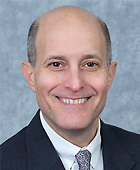Expert’s Corner: Best Practices for Treating Cancer Patients With Psychiatric Symptoms
Abstract
Depression and fatigue are commonly reported by patients with cancer, particularly those with advanced illness.

A cancer diagnosis frequently triggers emotional distress that can increase the risk of psychiatric disorders or exacerbate existing psychiatric conditions. Additionally, several neuropsychiatric side effects such as depression or fatigue are associated with the chemotherapeutic agents used to fight cancer (Levenson and Ferrando 2017). Surveys suggest that about half of patients with advanced cancer meet the criteria for a psychiatric disorder, with depression and adjustment disorder being the most common illnesses (Traeger et al. 2012).
Given the prevalence of cancer in the United States, it is likely that many psychiatrists will find themselves working with patients dealing with both cancer and a psychiatric illness. There are a few things to keep in mind when treating this patient population.
Many psychiatrists are closely involved with managing fatigue in cancer patients. While fatigue is not a psychiatric disorder per se, it is often comorbid in cancer patients with depression. Fatigue is also a common side effect of chemotherapy, and therefore can be present even in the absence of other psychiatric symptoms.
Since fatigue is closely associated with cancer treatment, it can manifest intermittently. A patient may feel fatigued for three weeks then bounce back during a break in treatment. Fatigue may not be apparent during a psychiatric consult, so psychiatrists should make sure to ask about a patient’s treatment history and past experiences with fatigue.
Studies suggest that psychostimulants (Escalante et al. 2014) and modafinil (Spathis et al. 2014) are effective at treating fatigue. Because fatigue can remain after other psychiatric symptoms resolve, adjunctive treatment with a stimulant or modafinil should not be unduly delayed.
These medications are generally safe for adult cancer patients. Physicians should monitor two possible side effects of these medications: excessive stimulation—which can lead to restlessness, anxiety, and/or insomnia—and anorexia. However, at typical therapeutic doses these side effects should not be major concerns. Modafinil is associated with prolonged QT interval, so it should not be mixed with certain chemotherapies (see below). I have less experience working with pediatric cancer patients, but my understanding is that there are no contraindications for stimulant use in this population either.
Another consideration that psychiatrists treating patients with cancer should keep in mind is the potential for negative interactions between psychotropic medications and chemotherapy agents. A wide range of chemotherapies prolong QT interval, so the use of additional QT-prolonging drugs such as citalopram or quetiapine should be avoided (Beach et al. 2013). Likewise, many chemotherapy drugs are primarily metabolized by the enzyme CYP3A4, so fluoxetine and fluvoxamine, which can inhibit CYP3A4, should be used with caution as well to avoid potential toxicity.
The breast cancer drug tamoxifen, which is given as an inactive prodrug, requires metabolism by both CYP3A4 and CYP2A6 to activate it. As such, many psychotropic drugs including paroxetine, fluoxetine, sertraline, or bupropion should be avoided during tamoxifen therapy since they can diminish the therapeutic effect. Instead, consider prescribing citalopram, escitalopram, venlafaxine, or mirtazapine to patients taking tamoxifen because they do not interfere with CYP metabolism (Breitbart 2011).
Psychiatrists should also be aware that chemotherapy drugs can also inhibit metabolizing enzymes. The leukemia agents imatinib, nilotinib, and dasatinib can reduce the efficacy of several CYP enzymes (Miguel and Albuquerque 2011). As a result, it is recommended that psychiatrists use judicious monitoring of symptom improvement and drug plasma levels to adjust doses as needed.
Beside chemotherapies, cancer patients are often prescribed adjunctive medications, the most common being drugs to manage cancer-associated pain. Psychiatrists should ask patients about pain medications they may be taking and avoid prescribing additional sedating agents such as benzodiazepines, particularly to patients taking opioid medications.
In general, it is important to rigorously treat the psychiatric symptoms of patients with cancer. Symptoms such as depression and fatigue considerably impact quality of life and can hinder cancer recovery. Physicians should stay informed about psychotropic agents that can produce adverse outcomes in cancer patients, particularly interactions that can reduce the efficacy of either the psychiatric medication or the chemotherapy. ■
Beach SR, Celano CM, Noseworthy PA, et al. QTc Prolongation, Torsades de Pointes, and Psychotropic Medications. Psychosomatics. 2013; 54(1):1-13.
Breitbart W. Do Antidepressants Reduce the Effectiveness of Tamoxifen? Psychooncology. 2011; 20(1):1-4.
Escalante CP, Meyers C, Reuben JM, et al. A Randomized, Double-Blind, 2-Period, Placebo-Controlled Crossover Trial of a Sustained-Release Methylphenidate in the Treatment of Fatigue in Cancer Patients. 2014. Cancer J. 2014; 20(1):8-14.
Levenson JL, Ferrando SJ. Clinical Manual of Psychopharmacology in the Medically Ill, Second Edition. Arlington, VA: American Psychiatric Association Publishing; 2017.
Miguel C, Albuquerque E. Drug Interaction in Psycho-oncology: Antidepressants and Antineoplastics. Pharmacology. 2011; 88(5-6):333-339.
Spathis A, Fife K, Blackhall F, et al. Modafinil for the Treatment of Fatigue in Lung Cancer: Results of a Placebo-Controlled, Double-Blind, Randomized Trial. J Clin Oncol. 2014; 32(18):1882-1888.
Traeger L, Greer JA, Fernandez-Robles C, et al. Evidence-Based Treatment of Anxiety in Patients With Cancer. J Clin Oncol. 2012; 30(11):1197-1205.



